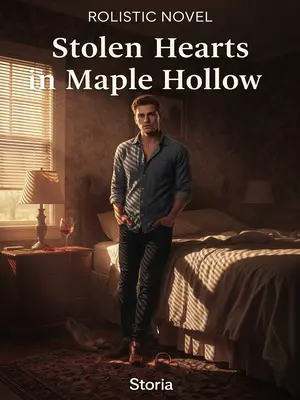Chapter 3: The New Chief Designer
Before Harrison and I left for Belgium, everything shifted.
It was just an ordinary afternoon. I was in my office, sketching out ideas, when the receptionist knocked and said Harrison had an announcement—everyone was to gather in the conference room.
I packed up, curiosity prickling at the back of my mind. Harrison rarely called impromptu meetings with the whole team.
The room was packed: department heads, designers, assistants. Then I saw Savannah.
She stood beside Harrison—tall and striking, with long chestnut hair styled in loose waves, wearing a bold, cherry-red Michael Kors dress. She had a confident stance, perfectly manicured nails, and a polished smile that didn’t quite reach her eyes. Her accent was crisp and unmistakably East Coast, and when she looked up, her gaze was sharp and appraising.
It wasn’t a friendly look. I shifted my focus to Harrison.
He didn’t meet my eyes. He began, “Savannah Pierce, an outstanding designer. Starting today, she joins Whitmore & Co. as chief designer. Let’s welcome her.”
The announcement hit like a thunderclap. The room buzzed with tension—people shifting in their seats, side-eyeing each other in disbelief.
No one clapped. After the initial shock, the room filled with whispers and sideways glances.
A few people exchanged looks of surprise. Someone coughed awkwardly, but no one applauded.
Everyone knew that since Whitmore & Co. was founded, no one had ever parachuted in as chief designer. No matter how talented, you started as an assistant and worked your way up. It was a badge of honor.
I did the same—starting from the bottom, only becoming chief designer after winning three international awards. My ability was never questioned.
It felt like a slap in the face—not just to me, but to everyone who’d worked their way up. My heart pounded, but I kept my face composed.
People exchanged glances. Savannah, unfazed, stood next to Harrison with a poised smile, introducing herself.
She spoke with practiced poise, her voice confident and clear. I watched for any sign of nerves, but she seemed perfectly in control.
Truthfully, she was accomplished—but not in design. Her résumé was filled with unrelated achievements: humanitarian work in Africa, piano competitions, debate championships.
It was impressive, but irrelevant. I felt a knot of unease tighten in my chest.
Even after she finished, the silence was deafening. I saw a few colleagues exchange skeptical looks, arms folded tightly.
Harrison scanned the room, then his eyes found mine. He said, “Lillian, Savannah is new here and unfamiliar with everything. Please help her settle in.”
His tone was gentle, but the formality stung. It felt like a boundary had been drawn.
Help him help her.
The words echoed in my mind. I felt a twinge of sadness. Suddenly, we felt like strangers.
But I looked Harrison in the eye. Even though I doubted Savannah, I trusted Harrison’s judgment—he was always careful, never reckless.
So I smiled and said, “Okay.”
My voice was steady, but inside, I felt a little empty. I told myself it was just another challenge—nothing I couldn’t handle.













